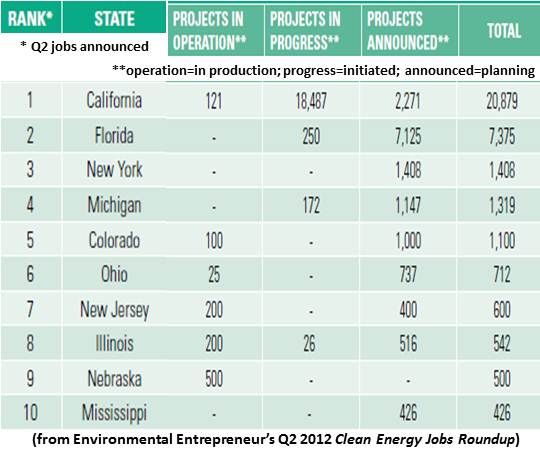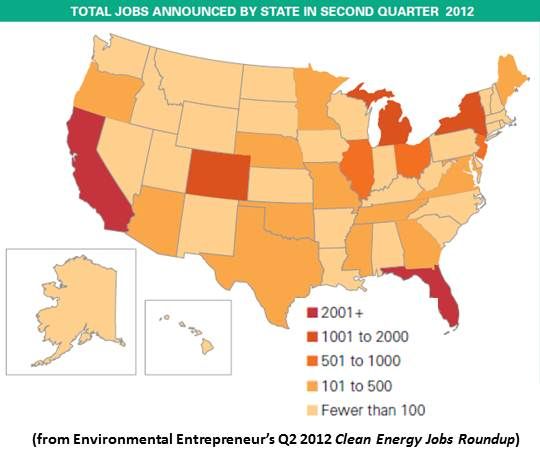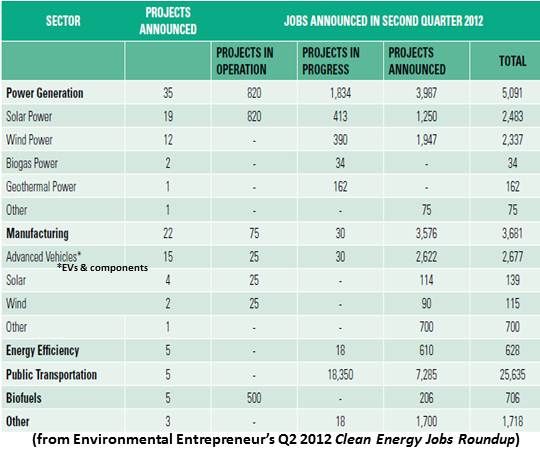Despite a still teetering economy, the renewables sector continued to be a source of jobs from April to June, according to a survey from Environmental Entrepreneurs (E2).
In five categories of green employment -- clean power generation; manufacturing of clean technologies; energy efficiency; public transportation (building and operating clean technologies); and biofuels -- some 70 companies, cities and organizations in 30 states announced projects that could eventually generate 37,409 jobs, according to E2.
Public transportation and efficient vehicle technologies led the manufacturing category, and solar led in the generation category.
New solar installations in Q2 2012 were 85 percent above the Q2 2011 installations. The price of solar panels dropped 47 percent in the same period. The price of installed PV was two-thirds what it was in 2010, according to the E2 report.

Nearly a third of the new project announcements were in the Midwest, with Michigan, Illinois and Ohio leading.
But the overall good news about the green economy’s move to blue-collar territory was tempered by the vulnerability of 37,000 jobs to the shutdown of the wind industry that could result from Congress’ decision not to extend wind’s vital production tax credit (PTC).
Q2 2012’s twelve wind projects, which created 2,300 jobs, was down from the previous quarter’s 31 wind projects and 9,100 jobs.
Yet despite the congressional impasse on the PTC, E2’s numbers emphasize how bipartisan the clean jobs issue is. A total of 35 clean energy projects were announced in Democratic districts, 31 in Republican districts and nine spanned districts of both parties.

Public-private partnerships, according to the report, were particularly important job creation engines in Q2 2012. Singled out were:
--A planned 5.4-megawatt CHP project from Montclair State University and Energenic-US, LLC, that could create 400 construction jobs
--The SolarTech WorkForce Innovations Collaborative between the Silicon Valley Leadership Group and NOVA that has trained 255 people and placed 121 with local companies
--A $1.4 million partnership between the City of Baltimore and Civic Works’ EnergyReady that will train 50 people to weatherize 300 low-income homes
--A 350-megawatt solar project from the Moapa Band of the Paiute Indians Tribe and the federal government that will create 400 construction jobs and 20 permanent jobs
--A Smart Energy Capital and Jacoby Development 10-megawatt solar project, Georgia’s biggest, that will create 75 construction jobs
--A Green Energy Partners and City of Maribel, WI food-waste-to-energy project that will create 20 jobs, and
--A Novozymes-federal government partnership that will build a $200 million enzyme production facility, creating 400 construction jobs and 100 full-time jobs.




